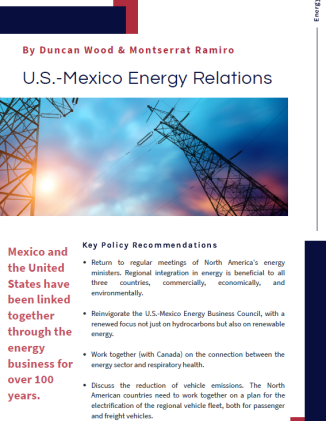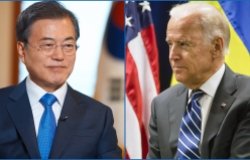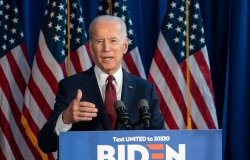US-Mexico Energy Relations


Mexico and the United States have been linked together through the energy business for over 100 years. The investment by US firms in Mexican oil reserves helped to develop those resources in the early 20th century and, despite the 1938 nationalization, US companies remained in Mexico, waiting for an opportunity to invest again. The 2013 energy reform made that possible after 75 years, and US companies rushed to explore opportunities. At the same time, US firms invested heavily in the electricity sector, and in the construction of oil and gas transportation infrastructure. All in all, the two countries saw an invigorated and vibrant energy relationship develop after the reform.
The growth of the bilateral energy trade was brought to a halt in 2019 by the focus of the Andrés Manuel López Obrador (AMLO) administration on energy sovereignty (see section below), and in 2020 by the onset of the COVID-19 pandemic. As the Biden administration begins, one goal should be to safeguard the huge inroads made into Mexico’s energy markets, and to further develop opportunities for US investment in Mexican renewable energy.
This policy brief is part of our series "Re-Building a Complex Partnership: The Outlook for US-Mexico Relations under the Biden Administration." The policy briefs will be released individually and published as a volume in early 2021.
About the Authors

Mexico Institute
The Mexico Institute seeks to improve understanding, communication, and cooperation between Mexico and the United States by promoting original research, encouraging public discussion, and proposing policy options for enhancing the bilateral relationship. A binational Advisory Board, chaired by Luis Téllez and Earl Anthony Wayne, oversees the work of the Mexico Institute. Read more














